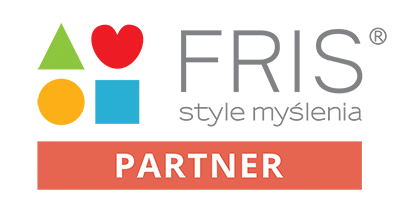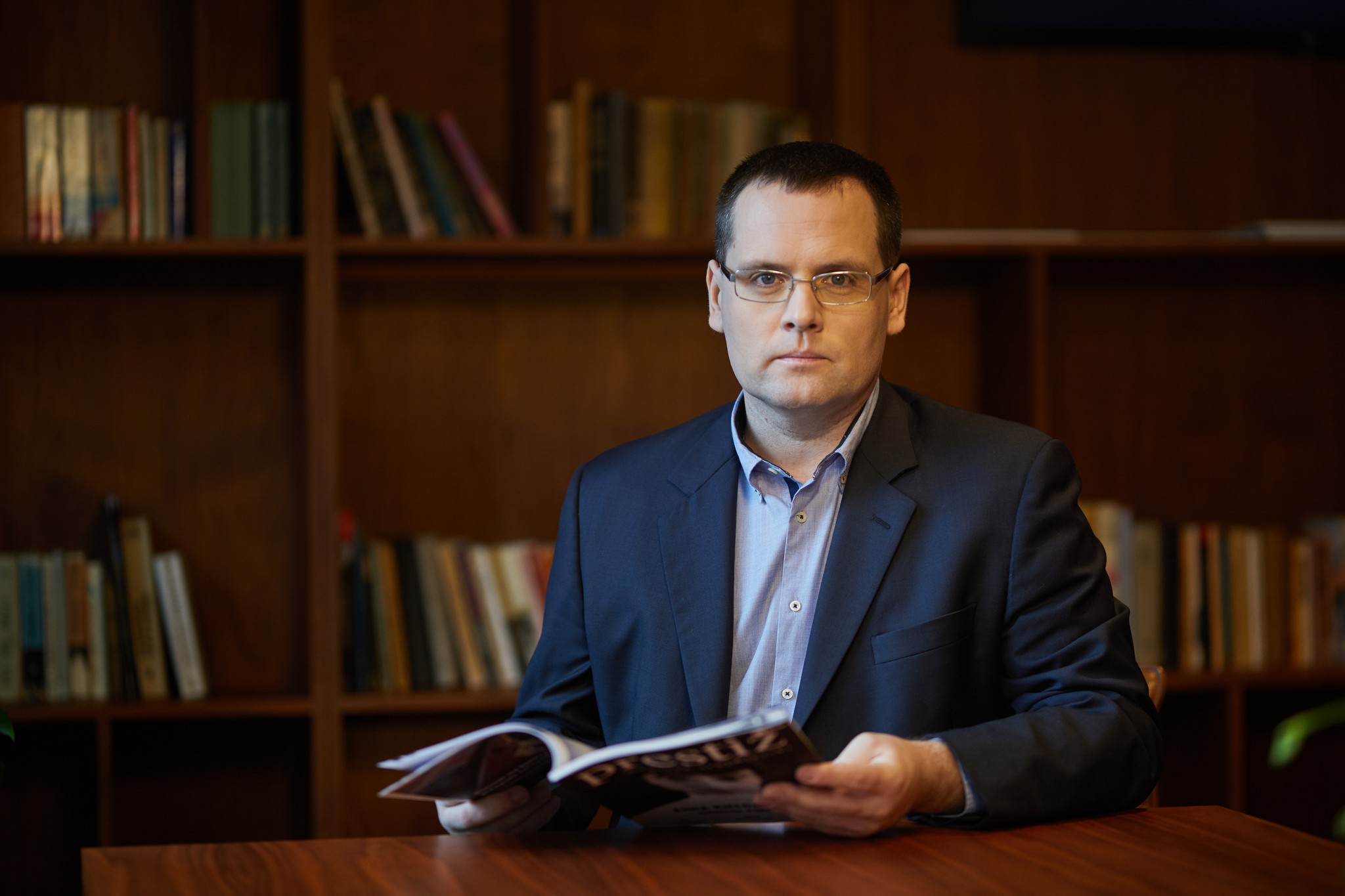Piotr SzczepańskiWybrałem studia MBA ponieważ istotne było dla mnie to, aby mieć możliwość rozwoju swoich umiejętności, poznanie inspirujących ludzi i wymiana z nimi doświadczeń – to udało się osiągnąć w 100%. Fakt że w grupie są ludzie z różnych sektorów przemysłu i zmagają się z różnymi problemami, sprawia że dyskusje są naprawdę ciekawe.
uczestnik studiów MBA Leadership w Gdańsku

The MBA Leadership Program spans 4 semesters. It comprises 19 mandatory core modules, totaling 450 hours of instruction in a variety of areas. Sessions are scheduled on Saturdays and Sundays, two sessions in a month.

Instructional methods
We teach practical, applicable skills. Hence, what matters the most is that students actively engage in both in-class and out-of-class activities. The use of interactive methods of instruction is key to achieving satisfactory learning outcomes. Lectures are followed up by practical exercises, workshops, case studies, skills training sessions, and business simulations that allow students to capture their progress in managerial skills development.
Course materials
Prior to each session, the participants are provided with a complete package of instructor-designed course materials, including the prescribed readings. Most of the recommended readings are available in our Library. Learning content, as well as class schedules and payment information, can be also accessed online via the Web-based student portal called Extranet, enabling students to stay in touch 24/7.
Program completion
The students are expected to develop a final project using FRIS® Thinking and Action Styles. Based on cognitive psychology theories and models, FRIS® is a diagnostic tool adapted to Polish business settings and supporting the development of managers, teams, and organizations. Its application in management education has been growing fast across the country. As an outcome of the coach-led project, each student will author a final paper describing his/her personal “before and after” story of the 12-months transformative experience.
Your degree
Our MBA Program graduates are awarded a prestigious degree coming with a diploma issued by the WSB University in Gdańsk and a certificate from the Peregrine Leadership Institute. In addition, MBA degree holders automatically qualify as eligible candidates for supervisory boards of Polish companies with government shareholdings and are therefore exempt from the relevant examination.
The MBA Leadership program includes 19 modules, totaling 450 hours of classes. Depending on the chosen language path, participants complete the program:
- 100% in English
- 30% in English and 70% in Polish.
Modules:
- Integration and Leadership Project Introduction PL/ENG
The module is intended to integrate the participants, to teach them working together, to show them how a manger works and communicates with the environment. Its program is targeted at the integration through play. It includes elements of vocal work, body language, elements of rhetoric and recognition of personality types executed through games, simulations and tests. During classes the course participants get familiar with the principles of the 18-month coursework.
- International Economics and Business ENG
In this module, the participants acquire knowledge and soft skills, useful in the efficient operation of a Polish company on the international market. The course is an answer to the needs of those company employees who increasingly deal with international cooperation. This concerns foreign trade, direct investments as well as the work in companies where foreign capital is involved. The course is divided into two parts covering soft aspects of international business (etiquette of the international contacts) and hard facts about the business environment of Polish economy as a whole and with reference to particular enterprises.
- Business Law PL/ENG
The cycle of education within this module is intended to enable the managers to skilfully move through social aspects both inside a company, within employee-employer relations (labour law), and in business environment relations with the group of owners, shareholders and partners in an enterprise (trade law, commercial law). The last component of the module, connected with the financial law and with the tax law in particular, will provide a manager with the skill of moving through the sphere of right and obligations resulting from such public law relations as tax procedures, fiscal audit and tax inspection. Getting familiar with a huge range of rights and obligations in the public law sphere will make it possible to avoid unnecessary disputes with public law bodies.
- Ethics and Corporate Social Responsibility ENG
A manager is not only a market player but also an active participant of culture. Choices and economic activity are determined by intangible assets: values, moral standards, tradition, custom, principles and rules. The objective of the classes is to demonstrate values and ethical principles that affect the development of work relationships and management methods. The discussed subjects, among other things, concern ethical problems of company activity, the notion of corporate social responsibility or professional codes of ethics. The course participants develop the ability to diagnose conflicts of values and to analyse the symptoms, causes and the course of particular tensions in the working environment. The classes are conducted in the form of lectures and tutorials.
- Interpersonal Leadership ENG
Your leadership journey begins by laying the foundation of leadership with a thorough understanding of the values, skills, and actions required by leaders. In this course, we will define what it means to be a values-based leader, a leader who leads with integrity with an unimpeachable character. Next, we will explore several key leadership skills including communications, leadership styles, the power of positive expectations, change management through leadership, and teambuilding. Finally, we will discuss how to demonstrate your values and leverage your skills through your leadership actions in the workplace. We will also develop your personal leadership action plan to help you grow as a leader throughout the MBA program.
- Project and Process Management PL/ENG
The future of each business enterprise depends on the effective achievement of the strategic goals of its organisation and its business projects. Efficient management of projects requires the project managers to posses certain skills, the support of highest-level managers and proper culture within an organisation. The module provides methods of managing processes and projects. Among other skills, the course participants acquire the ability to recognise needs of an organisation focused on projects, programs and portfolios, to define the project objectives and to determine their assessment criteria. The classes take place in the form lectures, tutorials and workshops. A discussion follows each subject section and the course participants share their experiences. - Customer Focus and Marketing ENG
The objective of the module is to present the notion of marketing from the strategic point of view. The course participants acquire skills in building a marketing strategy based on distinguishing features and competitive edge. They become familiar with the concept of strategic management according to M. Porter, with the assumptions of “marketing warfare” by J. Trout and the idea of 5-sense marketing. The module provides knowledge about the principles of global competition, the essence of brand management, planning the marketing communication and the assessment of the plan and its particular components. It develops the competences of the participants regarding, among other things, the setting of prices and the effective application of price promotions or planning marketing communication. Discussions, workshops, tutorials and case studies allow the participants for the practical utilisation of the knowledge acquired during the course. - HR Management and Team Building - ENG/PL
- Financial Accounting and Reporting PL/ENG
Accounting is a "business language", and financial information is a base for assessing company’s performance, and it is the main source for management to make decision on operational, investment and financial level. In addition, financial reporting is a valuable source of financial information for stakeholders i.e. owners, current and potential investors, financial institutions, contractors and affects the fact how the company is perceived by the environment. An effective leader must acquire competencies to accurately assess the condition of a company and on the basis of the assessment, the leader will be able to correct the direction of the company's development, the company's strategy and take the right strategic decisions. This module will help to develop this key leadership competency. The participants of this module will gain the necessary knowledge in the area of particular elements of the financial statements, principles of its preparation and will acquire the ability to interpret financial data included in the financial statements, and thus acquire the ability to assess the financial position and financial performance of the company. The knowledge acquired during this module will also allow participants to properly use financial information, for example in effective communication with the company's stakeholders and in PR activities. The classes are conducted in the form of workshops and analysis of case studies. - Managerial Coaching PL/ENG
The objective of this very intensive and interactive module is professional performance of a diagnosis of manager’s natural style of thinking and acting. This diagnosis provides insight into one’s natural predispositions, indicates strategies to deal with new situations, solving problems and taking decisions, and shows the areas where one’s potential may be optimally utilised. Additionally, with the application of FRIS®, an analytical system of Thinking and Acting Styles adjusted to Polish business reality, we prepare the course participants to conscious creation of synergies in teams. Good communication among the members of a team and high efficiency of common actions are a challenge for many managers. Based on an original concept that considers both efficiency of actions and satisfaction drawn from the work performed by the team, FRIS® assists in a simple and fast assessment of the team’s potential. Awareness of what thinking styles particular members of the team represent, helps in their better communication, in the creation of healthy relationships and prevents potential conflicts.
- Corporate Finance Management PL/ENG
The module exposes learners to the key tools and methods used in finance management, at the same time allowing them to understand the complex links between the financial processes taking place in a business. The course provides insights into how the financial environment affects an organization and its decision making. The students will also look into the relationships between corporate finance, financial accounting and management accounting, as well as into the interactions among the specific types of financial operations performed in a business. As a result, they will learn to identify corporate finance management issues and to apply the right methods in resolving them, both in terms of making optimal decisions and in terms of minimizing risks in a given area. The course is composed of lectures and workshop practice. - Strategic Management PL/ENG
The process of defining and redefining the strategy of an enterprise in the dynamically transforming environment and the growing competitiveness is increasingly challenging for managers. In this module, the course participants analyse and compare business models as well as develop the skills connected with the identification and analysis of problems and the proposition of adequate system and operational solutions in managing an enterprise targeted at its long-term and stable market success. The classes have the form of discussions during the lecture session where the stress is put on the course participants using theory, their own experience and additional information to solve strategic problems presented in the studied case. - Business Negotiations and Conflict Resolution PL/ENG
Communication skills are the basic area of competences of a leader. The contemporary manager uses them not only in negotiations but also in the whole managerial process, i.e. in planning, organising, supervising the performance of the tasks and in managing the team’s work. A separate area of managerial communication includes convincing and persuasion – indispensably connected with motivating the subordinates. The course participants develop such skills as working with communicatively challenging partners, defence against manipulation, aggression and negative impact during interpersonal communication and planning the development of one’s own communication competences in accordance with one’s individual needs and the expectations of the company. The classes have a character of an interactive training and developmental workshop during which negotiation games, moderated discussions and situational simulations are applied. - Organisational Leadership ENG
Your leadership journey continues in this course on organizational leadership. We will discuss the skills and actions required to successfully lead teams, departments, and entire organizations. Key topics in this course include envisioning, leading the leaders, strategic communications, influence, inspiring others, and organizational knowledge management. We will discuss the challenges and opportunities that are inherent with senior level leadership. We will also help ensure that you have a sustainable leadership plan for your continued leadership success within your organization. - Communicating with Impact / Presentation Skills PL/ENG
In this module, the course participants shall learn how to prepare a professional business presentation, how to develop one’s charisma and how to capture and maintain the audience’s attention. The classes are conducted in the form of workshops. - Designing Organizations for Creativity and Innovation PL/ENG
In this module, the course participants familiarise themselves with the role of innovation in the global business and with the conditions necessary in shaping a systematized approach to the process of innovation in an organisation. They learn about various methodologies of creating innovative business models and solutions serving the stimulation of the culture of creativity within an organisation. They achieve the ability to use Design Thinking methodology and the selected aspects of Business Model Canvas – Value Proposition Map in correlation with the analysed needs of a client/user in the creation of new products/services. - Start-ups - Development Strategies - ENG
In the course, the students will find out how to start up a business, raise seed funding, and prepare a start-up for international market entry. Insights are provided, too, into the business start-up market trends and evolution trajectories.
- Change Management PL/ENG
Successful implementation of changes in an organisation depends on the change in people’s behaviour. Leading staff through this process is therefore one of the fundamental competences of a contemporary manager. During that module, the course participants learn about the best practices in managing various categories of changes. The classes shall have the form of workshops where individual work and teamwork shall be involved and cases studies shall be analysed. - Managerial Decision Game - PL/ENG
The course aims to advance the students’ skill in using relevant tools and indicators to develop, implement and control business strategies. Most emphasis is placed on illustrating the linkage between a company’s marketing decisions and its financial performance.
- Applied Leadership / 12-Month Project PL/ENG
The development of soft skills is no longer a “soft option” in business. We awaken our awareness and begin to understand that the areas we have always considered soft, particularly the intrapersonal and interpersonal competences, are indispensable in the healthy and harmonised operation of business. The module constitutes a 20-hour project whose base is to provide managers with the conditions so that they will know themselves better and they will increase their self-awareness. In order to do the above, we have been applying Thinking and Acting Styles FRIS® method, the fastest growing tool for diagnostics and development on the Polish market. Individual coaching sessions, 360 degrees assessment method, individual and team tasks or research forms are but a few methods of the project that improve individual styles of self-management and of managing others. A few months of work impact the change of one’s habits in the sphere of building business relations, and the effect of the final original (author’s) project is a written final course work consisting of an essay and a presentation describing personal history of metamorphosis at the cognitive, emotional and behavioural level.
- Optional Trainings Plus One-Time-Workshops / Seminars PL/ENG
Final Project

We have designed a 20-hour project aimed at creating conditions for managers to better understand themselves and increase their self-awareness. To achieve this goal, we will use the fastest-growing diagnostic and development tool in the Polish market, the FRIS® Thinking and Action Styles, which is used to support organizations across Poland as well as in the education and development of managers. The FRIS® methodology is based on theories and models from the field of cognitive psychology and is adapted to the Polish business environment.
FRIS® Thinking and Action Styles
The goal of our coaching project is to professionally diagnose a manager's natural style of thinking and action. This diagnosis provides insight into natural predispositions, suggests strategies for coping with new situations, problem-solving, and decision-making, and identifies areas where one can best utilize their potential.
We believe that the most effective teams are the most diverse in terms of cognitive styles, which is why we additionally prepare managers to consciously create synergy within teams using the FRIS® Thinking and Action Styles assessment. For many managers, good communication between team members and high efficiency in joint activities are challenging. FRIS® helps with this by quickly and simply determining the team's potential, based on an original concept that considers both operational efficiency and job satisfaction. Knowing the Thinking Styles of team members helps improve communication, build healthy relationships, and prevent potential conflicts. We come into contact with another person's cognitive style most when we begin to collaborate with them, when we start depending on each other to solve a problem or achieve a goal.
Advantages and Potential Benefits
The application of FRIS® in our elite project will occur on many levels, and the greatest benefits of its application in working with business owners and senior management include:
- Improving the quality of one's management style
- Faster communication and better adaptation of communication in relations with others
- Understanding one's strengths and weaknesses and making more informed decisions
- Changing perspectives and viewing others through the lens of their individual thinking and action styles
- Accepting cognitive diversity among employees and appreciating its impact on the potential of the entire team.
Project Structure
Our project strongly focuses on experiential learning. As part of the project, each manager will be invited to:
- Several individual coaching sessions with a certified FRIS® trainer (coaching sessions will be based on the results and analysis of individual FRIS® Thinking and Action Styles reports)
- Several individual coaching sessions based on 360° observations with an American business advisor
- Role-playing activities
- Interactive group discussions
- Individual homework assignments involving self-observation and observation of one's immediate business and private environment (observation cards, journals).
Final Outcome
Through several months of individual work and collaboration with coaches, participants will notice tangible effects of conscious work with FRIS®, primarily in changing their habits in the areas of team building and relationships with business partners.
As a result of this unique coaching project, a diploma thesis will be created, describing each participant's personal transformation story "before and after" the 12 months of intensive development work. The inspiration for presenting the diploma thesis will be the unlimited and creative imagination of each participant (theatrical performance, stand-up, photo show, painting, or other forms of artistic expression).
Off-site Session

The first session of the first semester is organized as a two-day off-site session near the Tricity area. This is a great opportunity for participants to get to know each other better and integrate.
Additional Training
Participants can attend selected full-scale training sessions included in the tuition fees. They can also opt for additional paid training sessions offered by the Postgraduate and Training Department, including PRINCE2® Foundation.
VIP Lectures
Special guest lectures are held several times a year. MBA students have had the opportunity to meet with Prof. Simon Burtonshaw-Gunn, Magdalena Gacyk, Dr. Izabela Robinson, Liam Fassam, Dr. Eghosa Igudia, Dr. Olin O. Oedekoven, Tomasz Deker and Maciej Grabski, Paweł Gąsiorowski, Dr. Chahid Fourali, Dr. Mateusz Bonca, and Krzysztof Wielicki.
MBA Study Tour
Since 2015, MBA students have also had the opportunity to participate in a multi-day trip to Franklin University in the United States, together with students from other MBA programs in the WSB Group. These trips are additionally paid. Detailed information is provided by the MBA Program Office.
UK Study Tour
Once a year, a three-day trip to the UK to a partner university is organized for MBA program participants, with a unique program tailored to the profile of the studies. The stay in Northampton includes meetings and workshops conducted in selected British companies. Participants of these trips have had the chance to see how the DHL international distribution center operates, visit the Alconbury Weald Enterprise Zone, and tour the BMW MINI factory.
Alumni Meeting
We have a large group of alumni, so since 2016, the MBA Program Office has permanently included an alumni meeting in the MBA program calendar. Like the MBA studies, this event is guided by the idea of networking, and during the meetings, participants exchange experiences with special guests. So far, meetings have been held with Sebastian Mikosz, former CEO of LOT Polish Airlines, Lidia Jabłonowska-Luba, Vice President of mBank in charge of risk management, and Ryszard Kajkowski, founder and then owner and co-owner of the first private IT companies in Poland.